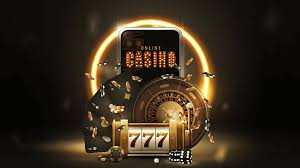
Blockchain Casinos and Provably Fair: A Revolution in Online Gambling
The online gambling industry has experienced dramatic transformations over the last decade, especially with the advent of blockchain technology. Blockchain casinos leverage this decentralization concept to ensure fairness, transparency, and security, thus giving players more confidence in their gaming experiences. One of the most intriguing aspects of blockchain casinos is the idea of ‘provably fair’ gaming, which fundamentally changes the way gamers interact with online casinos. As we delve deeper into this topic, we’ll explore how blockchain casinos operate, the mechanics of provably fair gaming, and the implications for the future of gambling. To learn more about some of the options available, you can visit Blockchain Casinos and Provably Fair Play http://megapari-bangladesh.com/.
Understanding Blockchain Technology
At its core, blockchain is a distributed ledger technology that allows data to be stored across multiple computers without a central authority. This decentralization ensures that transactions are transparent and tamper-proof, which is particularly advantageous in the gambling sector. By utilizing blockchain, casinos can provide unalterable records of all transactions and gaming outcomes, instilling trust in players who are often skeptical of traditional online casinos.
The Emergence of Blockchain Casinos
Blockchain casinos operate on various cryptocurrencies, such as Bitcoin and Ethereum, which allow for anonymous and secure transactions. These casinos offer a range of games, from slots to poker, all designed upon blockchain protocols. Not only do blockchain casinos provide a method of secure gambling, but they also bypass a host of regulatory constraints that traditional casinos face, enabling them to offer a more global service.

What is Provably Fair Gaming?
Provably fair gaming is a system that allows players to verify the fairness of each game outcome on their own. Traditional online casinos often operate under trust-based systems where players must rely on the operator to conduct games fairly. Blockchain casinos resolve this issue by providing players with cryptographic hashes that can be checked before and after the outcome of the game.
When a player initiates a game, the casino generates a hashed random seed and shares it with the player. After the game concludes, the player can compare the outcome with the original seed, ensuring that the result was not manipulated. This added layer of transparency disrupts the conventional gambling model, allowing players to feel secure in their bets.
Benefits of Blockchain Casinos
- Transparency: Every transaction is recorded on a public ledger, making it impossible for casinos to alter results.
- Security: Blockchain technology ensures security, with data being nearly impossible to tamper with.
- Anonymity: Players can participate in games without revealing personal information, as cryptocurrency transactions provide an added layer of anonymity.
- Reduced Fees: By cutting out intermediaries, blockchain casinos often have lower fees compared to traditional gambling platforms.
- Global Access: Cryptocurrency facilitates gambling across borders, removing regional restrictions that traditional casinos often have.
Challenges Facing Blockchain Casinos
While the benefits of blockchain casinos are substantial, they are not without challenges. The legal landscape surrounding online gambling remains complex, with many jurisdictions still unsure of how to regulate cryptocurrencies properly. Additionally, while a higher level of security exists through blockchain, players must also take individual responsibility for securing their private keys and funds.

Furthermore, the volatility of cryptocurrencies can be a double-edged sword. While it offers players the potential for bigger payouts, it can also expose them to financial risk due to rapid price fluctuations.
The Future of Blockchain Casinos
The future of blockchain casinos appears promising. As awareness and adoption of cryptocurrencies increase, more players are likely to gravitate towards these decentralized gaming platforms. Innovative features such as decentralized finance (DeFi) integrations, unique staking models, and gamification elements are on the rise, potentially revolutionizing the gambling experience.
Additionally, advancements in blockchain technology, such as the development of faster transaction protocols and improved user interfaces, will likely make these platforms more accessible to the general public, broadening the audience for blockchain casinos.
Conclusion
Blockchain casinos epitomize the convergence of technology and entertainment, showcasing how a technological shift can enhance player experiences in the gambling domain. The concept of provably fair gaming addresses long-standing trust issues, offering players greater control and confidence in their gaming choices. As the industry continues to evolve, the potential for blockchain casinos seems limitless, with an increasing number of players seeking transparency, security, and convenience in their online gaming experiences.




